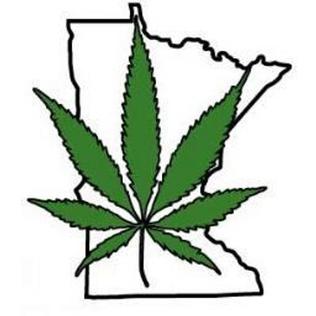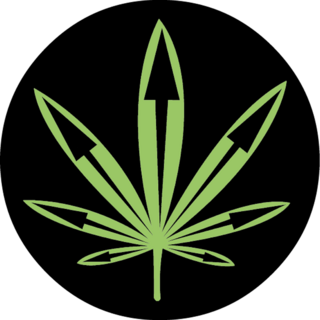The National Organization for the Reform of Marijuana Laws is a social welfare organization based in Washington, D.C., that advocates for the reform of marijuana laws in the United States regarding both medical and non-medical use. According to their website, NORML supports "the removal of all penalties for the private possession and responsible use of marijuana by adults, including cultivation for personal use, and casual nonprofit transfers of small amounts" and advocates for "the creation of a legal and regulatory framework for marijuana's production and retail sale to adults". NORML also has a sister organization, NORML Foundation, that focuses on educational efforts and providing legal assistance and support to people affected negatively by current marijuana laws. NORML maintains chapters in a number of US states as well as outside the US in countries such as Canada, France, New Zealand, and South Africa.

Seattle Hempfest is an annual event in the city of Seattle, Washington advocating the legalization of cannabis. Vivian McPeak serves as the organization's executive director. Founded in 1991 as the Washington Hemp Expo, a self-described "humble gathering of stoners" attended by only 500 people, and renamed the following year as Hempfest, it has grown into a three-day annual political rally, concert, and arts and crafts fair with attendance typically over 100,000. Speakers have included Seattle city council member Nick Licata, actor/activist Woody Harrelson (2004), travel writer and TV host Rick Steves (2007), (2010), 2012 Green Party speaker Jill Stein, Dallas Cowboys center Mark Stepnoski (2003), and former chief of the Seattle Police Department Norm Stamper (2006). Hempfest has also in recent years attracted such well-known performers as Fishbone (2002), The Kottonmouth Kings (2004), Rehab (2006), and Pato Banton (2007) to its five stages spread throughout Myrtle Edwards Park and Elliott Bay Park, on Seattle's waterfront.
Allen St. Pierre served as the Executive Director of the National Organization for the Reform of Marijuana Laws (NORML), an American non-profit organization that wishes to remove the criminal penalties for and legalize cannabis. St. Pierre was hired by NORML's Board of Directors in 1991 when he worked as a Communications Director for the organization. He gradually rose through the ranks, becoming the Deputy National Director in 1993. When the NORML Foundation was created in 1997, St. Pierre was chosen to be its executive director. The NORML Foundation is a sister organization of NORML that works "to better educate the public about marijuana and marijuana policy options, and to assist victims of the current laws".

In the United States, the non-medical use of cannabis is legalized in 23 states and decriminalized in 8 states, as of May 2023. Decriminalization refers to a policy of reduced penalties for cannabis offenses, typically involving a civil penalty for possessing small amounts, instead of criminal prosecution or the threat of arrest. In jurisdictions without penalty the policy is referred to as legalization, although the term decriminalization is sometimes used for this purpose as well.

In the United States, the use of cannabis for medical purposes is legal in 38 states, four out of five permanently inhabited U.S. territories, and the District of Columbia, as of March 2023. Ten other states have more restrictive laws limiting THC content, for the purpose of allowing access to products that are rich in cannabidiol (CBD), a non-psychoactive component of cannabis. There is significant variation in medical cannabis laws from state to state, including how it is produced and distributed, how it can be consumed, and what medical conditions it can be used for.

NORML New Zealand is a cannabis law reform organisation in New Zealand. It is a National Chapter of the National Organization for the Reform of Marijuana Laws (NORML).

In the United States, the use and possession of cannabis is illegal under federal law for any purpose by way of the Controlled Substances Act of 1970 (CSA). Under the CSA, cannabis is classified as a Schedule I substance, determined to have a high potential for abuse and no accepted medical use. Despite this, most states have legalized either or both the medical and recreational use of cannabis.

The legal history of cannabis in the United States began with state-level prohibition in the early 20th century, with the first major federal limitations occurring in 1937. Starting with Oregon in 1973, individual states began to liberalize cannabis laws through decriminalization. In 1996, California became the first state to legalize medical cannabis, sparking a trend that spread to a majority of states by 2016. In 2012, Washington and Colorado became the first states to legalize cannabis for recreational use.
Alaska Measure 2 or the Alaska Marijuana Criminalization Initiative was a successful 1990 ballot measure in the U.S. state of Alaska; the initiative stated that it: "would change Alaska's laws by making all such possession of marijuana criminal, with possible penalties of up to 90 days in jail and/or up to a $1000 fine."

The "Burnside Burn" was an event held on the Burnside Bridge in Portland, Oregon, starting at midnight on July 1, 2015, the day recreational marijuana became legal in the U.S. state of Oregon. It was organized by Portland NORML, the local chapter of the National Organization for the Reform of Marijuana Laws, having originated from its executive director, who wanted to photograph himself in front of the White Stag sign in the moments after Oregon Ballot Measure 91 took effect. The crowd, larger than anticipated, numbered in the thousands and at times blocked traffic lanes on the bridge. Some attendees wanted to commemorate the moment, while others were motivated by announcements of free marijuana and seeds. No fines were issued for consumption in public. The event was covered by cannabis publications, local and national news outlets, and the HBO television series Vice.

Cannabis is strictly illegal in Wyoming. The state has some of the strictest cannabis laws in the United States. Cannabis itself is not allowed for medical purposes, but a 2015 law allows limited use of non-psychoactive Cannabidiol. An effort was made to place two initiatives on the 2022 ballot, one to legalize medical cannabis, and the other to decriminalize personal use.
Doctors for Cannabis Regulation (DFCR) is a 501(c)(3) non-profit organization which serves as a global voice for physicians and health professionals who support cannabis legalization and science-based regulation in the United States and abroad. DFCR promotes public education, global research, and advocacy to support legislative changes necessary for improved public health, social justice & consumer protections. DFCR was founded on September 30, 2015, by David L. Nathan.

Cannabis in Ohio is legal for medical use and illegal for recreational use. Since 1975, possession of up to 100 grams has been decriminalized, with several of the state's major cities having enacted further reforms. Medical use was legalized in 2016 through a bill passed by the state legislature.
Madeline Martinez is an American cannabis rights activist.

Portland NORML is the National Organization for the Reform of Marijuana Laws (NORML) affiliate for Portland, Oregon, in the United States. The chapter was established in January 2015 by Portland-based radio host and cannabis activist Russ Belville. Scott Gordon serves as its executive director.

Minnesota NORML is the National Organization for the Reform of Marijuana Laws (NORML) affiliate for the U.S. state of Minnesota. As of 2017, Michael Ford served as the organization's executive director.

Texas NORML is a chapter of the National Organization for the Reform of Marijuana Laws (NORML) based in Austin, Texas. Jax Finkel serves as the organization's executive director. The organization's mission is to establish legal access to cannabis for all Texans.

NORML France, previously known as Chanvre & Libertés - NORML France is a French non-profit organization based in Toulouse but active in all territories of France, whose aim is to move public opinion sufficiently to achieve the depenalization of illicit drugs consumption, the legalization of non-medical marijuana and the increased access to medical cannabis in France, so that the responsible use of cannabis by adults is no longer subject to penalty.

Cannabis rights or marijuana rights are individual civil and human rights that vary by jurisdiction. The rights of people who consume cannabis include the right to be free from employment discrimination and housing discrimination.










